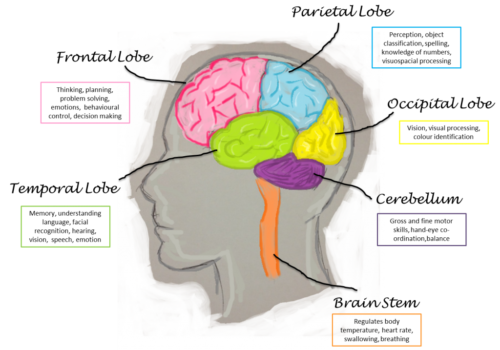
Every parent wants a perfectly healthy child with appropriate behaviour and who shows good grades at school. It is also every parent’s privilege to ensure optimum physiological, psychological and cognitive growth and development for their children.
These spheres are critically dependent on nutrition: The right combination of vitamins, micro-nutrients, minerals, and other vital nutrients. Therefore, it is essential to read and understand food labels to plan a balanced, chemical free diet for your child.
The old saying “you are what you eat” rings true as more and more scientific studies prove that nutrition has a profound effect on physical and neurological functioning. The chemicals in food affect the biochemistry in the brain and will manifest in your child’s behaviour. Besides bodily and brain functioning, proper nutrition also aids in the growth of organs and cell tissues.
It’s no secret that Andalene Salvasen (Munchkins) endorses healthy eating exactly because of the behavioural (and health) impact it has on our children. It is for this exact reason she co-authored Raising happy, healthy children with Sally-Ann Creed, a highly qualified Nutritional Therapist.
Below are some of the findings this book is based on, as well as some additional supporting research.
Neuro development
According to research, development of the frontal lobes are crucial as this part of the brain largely controls cognitive abilities such as reasoning, planning, problem solving, strategising, focus, evaluating and monitoring tasks. Scientists have found a direct link between proper nutrition and proper brain development. Therefore, your child needs the right amount of protein, iodine, and iron.

Behaviour
There seems to be a direct link between behavioural disorders and hormone imbalances in the brain. These imbalances are then manifested in anti-social behaviour where your child might come across as being introverted, hyperactive and/or misbehaving. Therefore, a healthy and balanced diet will positively affect your child’s ability to interact socially with friends and adults in the long term. If your child has mood swings, it is most likely due to varying serotonin levels.
Complex carbohydrates like sugar will raise serotonin levels, and after a short while the serotonin in the brain will drop significantly, resulting in an unhappy child. Sugar also breaks down your child’s immune system. Even though sugar is better processed when combined with protein, it is advised to avoid it as much as possible. Studies have also shown that excessive sugar intake causes nightmares. Look out for hidden sugars in fruit juice, yogurt, tomato sauce, biscuits, milk, and sugar added to their tea.
One teaspoon for an adult is equivalent to three teaspoons to a child.
Be snack-smart. Provide your toddler with fruit or vegetable snacks to avoid long foodless periods. The longer a toddler goes without food, the grumpier they will get.
Some allergic reactions in toddlers to new foods include sleepiness (more than usual), extreme thirst, diarrhoea, constipation and hyperactivity. Your child might be intolerant to refined grains, citrus, egg, fish, nuts, sugar foods and/or dairy products.
Research also found that ADHD is more common in malnourished children. Because they don’t have the required vitamins and minerals, their brain is not functioning optimally. As a result, their ability to concentrate, exercise self-control, and learning capacity are negatively affected. Furthermore, children with ADHD are more hyperactive and show aggressive and anti-social behaviour. This is largely due to a lack of iron and EFA’s (essential fatty acids) such as Omega-3 and 6.
Around the ages of 2-4 years, your child will most probably become a fussy eater. It is very important to focus and not deviate from healthy eating. During this stage your child’s growth increases and burns up a large amount of energy. Provide your child with frequent snacks and cover all nutritional bases.
There are numerous reasons your child might be refusing food:
o Too many unhealthy snacks/beverages during the day
o Your child is simply not hungry
o Teething or general upsets
o Decreased activity can also result in loss of appetite
o Worms
o Psychological reasons (like trauma or general sadness)
You can encourage your fussy eater by:
o Making sure they are hungry prior to making meals
o Giving small portions
o Providing colourful cutlery/crockery they like
o Sticking to meal time routines, having meals in a relaxed and happy environment (NOT in front of the television).
Labels
Do not feed your child store bought cookies, biscuits, pies, bread, any processed food, all of which have refined wheat, sugar, colourants, and artificial hydrogenated oil. As soon as fresh produce is processed, all the nutrients are lost. Thus it is advised to stay clear from shelve food. Rather fill your child’s diet with fresh fruit, vegetables (especially of the green variety), whole grains, and lean meat.
Avoid colourants and food additives as they have been proven to cause behavioural problems, allergic reactions and respiratory problems in children. Some anti-oxidants (see table below) have also been linked to certain cancers. MSG is added to enhance flavour (such as stock cubes, 2-minute noodles, sauces, etc.) and has shown negative health effects.
Bad E-numbers to look out for include:
| E-number | Name |
| E100-180 | Colorants |
| E102 | Tartrazine |
| E200-290 | Preservatives |
| E300-321 | Anti-oxidants |
| E320 | BHA |
| E321 | BHT |
| E322-494 | Emulsifiers and sweeteners |
| E621 | MSG |
Some good E-numbers include:
| E-number | Name |
| E101 | Vitamin B2 |
| E160 | Vitamin E |
| E300-304 | Vitamin C |
| E306-306 | Vitamin E |
Ham and all processed meats such as viennas must be avoided as numerous dangerous chemicals are added to them and therefore, can result in bowel cancer, unacceptable behaviour, and interference with brain activity, nutrient absorption and metabolism.
HVP or hydrolysed vegetable protein is made from vegetable peelings and laced with MSG or soya to give substance and taste to processed foods. Besides being chemically harmful, it also causes obesity.
Hydrogenated fat, trans fats, interesterified fats are also called ‘damaged’ fats. In essence, they consists of hardened hydrogen bubbles to give food a longer shelf life. The results include blocked arteries, allergic reactions, weak immune systems and even some cancers. Studies have even shown that these fats raise glucose levels and lower insulin levels.
Beware of labels reading non-trans fats or vegetable oil, as they are just other terms used for interesterified fats. Therefore, avoid all labels reading vegetable oil found on products such as sunflower oil, canola oil, grape seed oil, etc. Stick to olive oil or coconut oil as an alternative.
Fructose is a silent killer. As it triggers hunger, your child will want to eat more and gain unnecessary weight. It can also raise insulin levels resulting in your child being lethargic. Studies have also shown that fructose increases LDL cholesterol and promotes blood clotting.
The essentials

An adequate amount of Vitamin C will improve your child’s immune system, and, according to research, a balanced diet with Vitamin C and protein will prevent hyperactivity and difficult behaviour. It also promotes the production of hormones helping your child’s body deal with physical stress.
The right amount of Omega-3 and Omega-6 oils is essential for bodily and brain functioning. Try a liquid, ultra-refined fish oil with GLA, DHA and EPA. Otherwise, half a teaspoon of borage oil (free of hexane) together with half a teaspoon of ultra-refined, high potency Omega-3 fish oil will do the trick. According to research, giving your child fish oil supplements will result in your child reading at an earlier age, having neater handwriting, increased short-term memory, better coordination, and increased concentration. Brain scans have also shown increased NAA (NAcetylaspartate) levels which are linked to the growth of nerve fibres. A lack of Omega-3 fatty acids may result in ADD/ADHD, dyslexia, depression, and schizophrenia. Avoid flaxseed oil.
Eggs are excellent sources of protein, vitamins and minerals. It is a great idea for breakfast. Studies have shown that children who have had breakfast are more alert, less emotionally distressed, less tired, less anxious, less likely to experience stomach ailments, and are less likely to have trouble concentrating. Having breakfast will also regulate your child’s appetite and provide the energy for your child’s physical and neuro functioning.
All the nutrients are important, but this is basically what you want to aim for:
• Calcium: Around 500mg daily (use a citrate or chelate) up to the age of four
• Iron: 7mg a day is needed. If you are feeding red meat and eggs, he will be getting enough, and there won’t be a need to supplement
• Fish Oil (Omega-3): Use a liquid high-dose oil and give ½ to 1 teaspoon daily
• Vitamin C: 500mg – 1g a day at least
• Zinc: 22mg
Keep a food and mood journal
Write everything down your child eats on the left, and resulting behaviour (sleep patterns, food reactions, hyperactivity, allergies, depression, etc.) on the right. This will make it easier for you to spot patterns resulting from foods or combination of foods, and pinpoint what to remove from your child’s diet. It may seem that everything you feed your child may cause harm, still it is beneficial to be mindful of nutritional information and foster your munchkin’s optimum development.
Book a Healthy Lunchbox Session with Munchkins!
Life is busy, and serving up healthy food, especially when it comes to snacks and lunchbox meals, may seem like a very daunting and sometimes unobtainable task! There is also a common misconception that healthy means expensive.
Did you know that you can book a private 3-hour healthy lunchbox session with Andalene in the comfort of your own kitchen?
So, why not grab a couple of your mommy friends, split the cost of the session and the ingredients (which will be sent to you beforehand) and have a fun-filled morning or afternoon exploring all the healthy wheat and sugar-free alternatives for your entire family’s lunchboxes?
For more information and availability, contact any one of the following representatives for your respective area:
Madelein Nortje
(Accounts and Administrator, South Africa)
info@munchkins.me | +27 82 457 3535
Lyndall Jucker”
(Client Relations and Bookings, Dubai)
lyndall@munchkins.me | +971 50 559 0664





